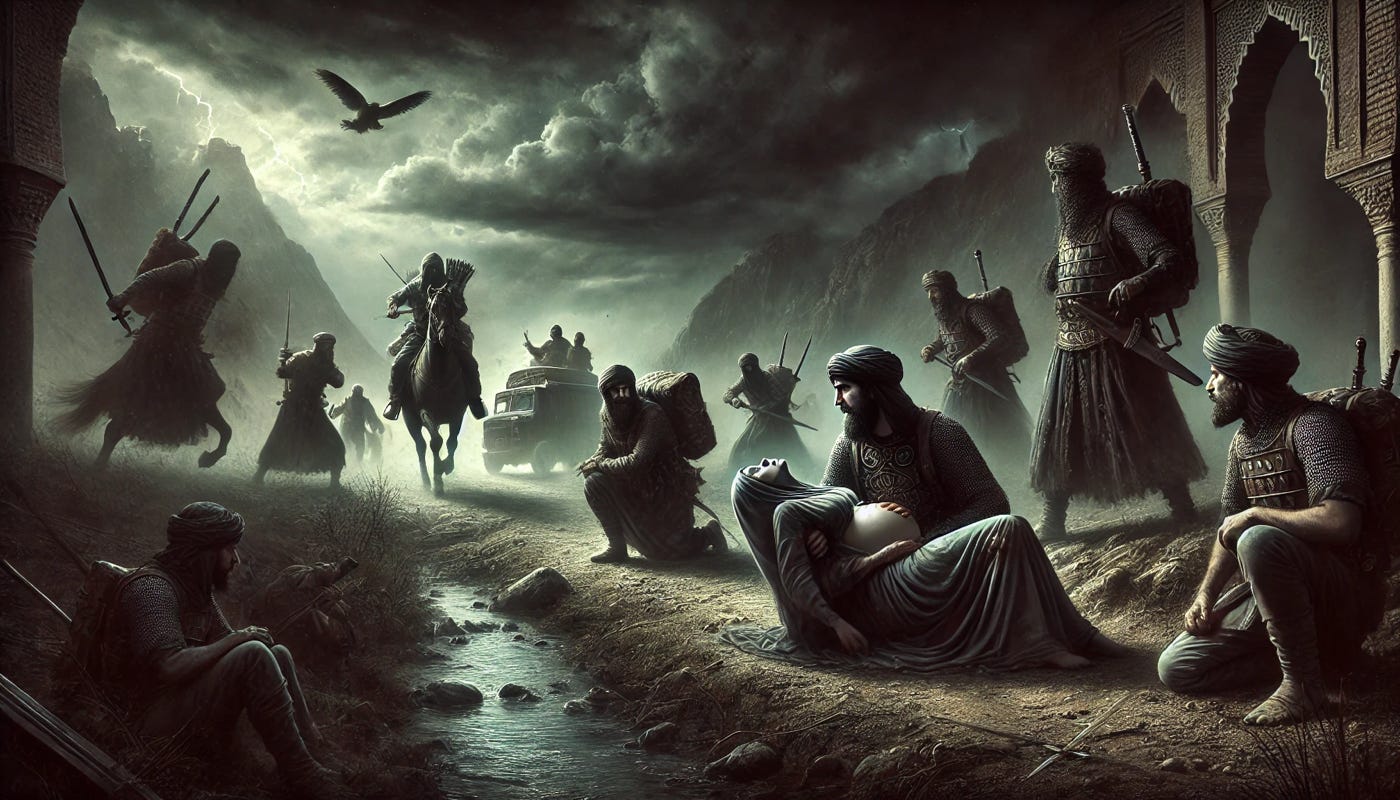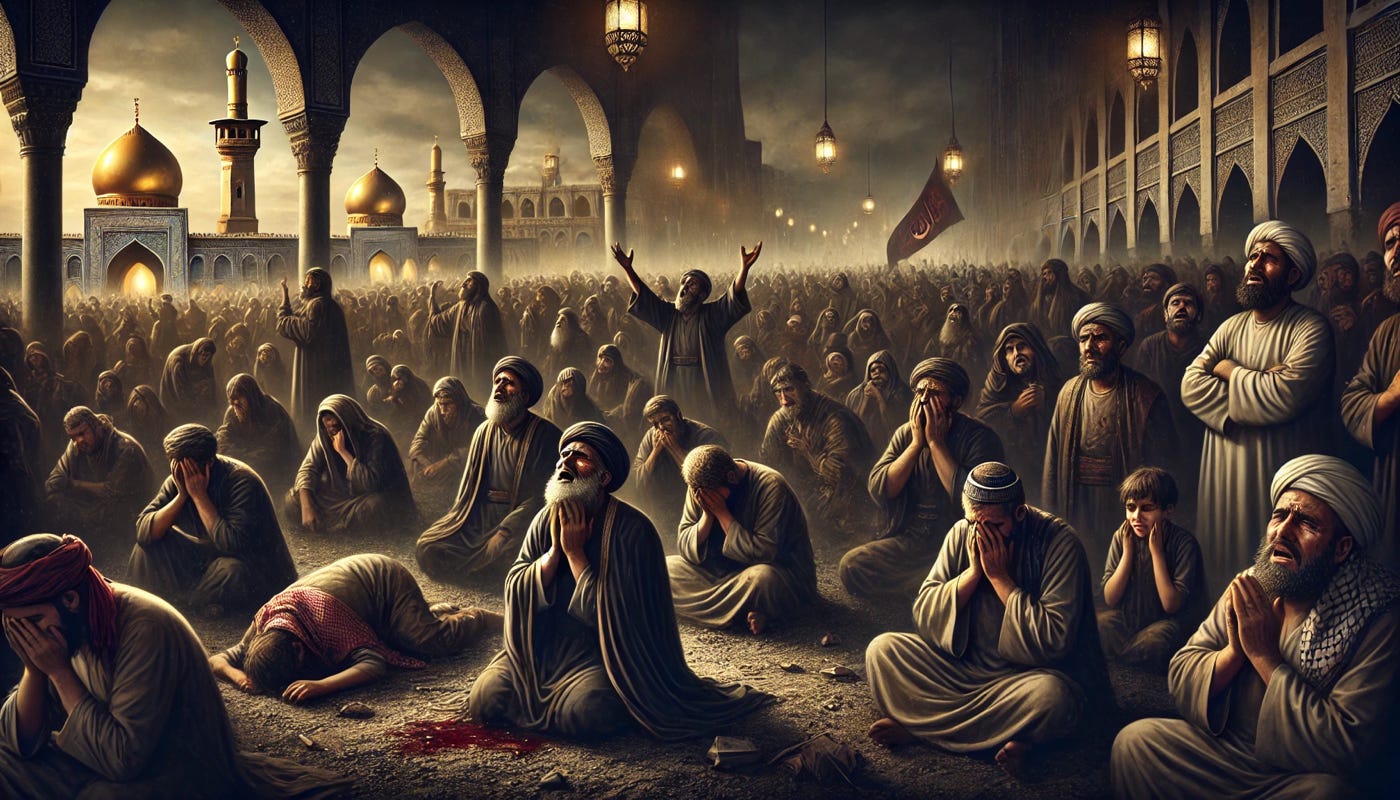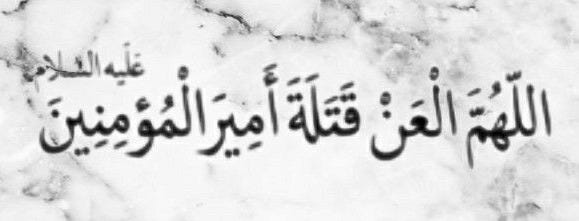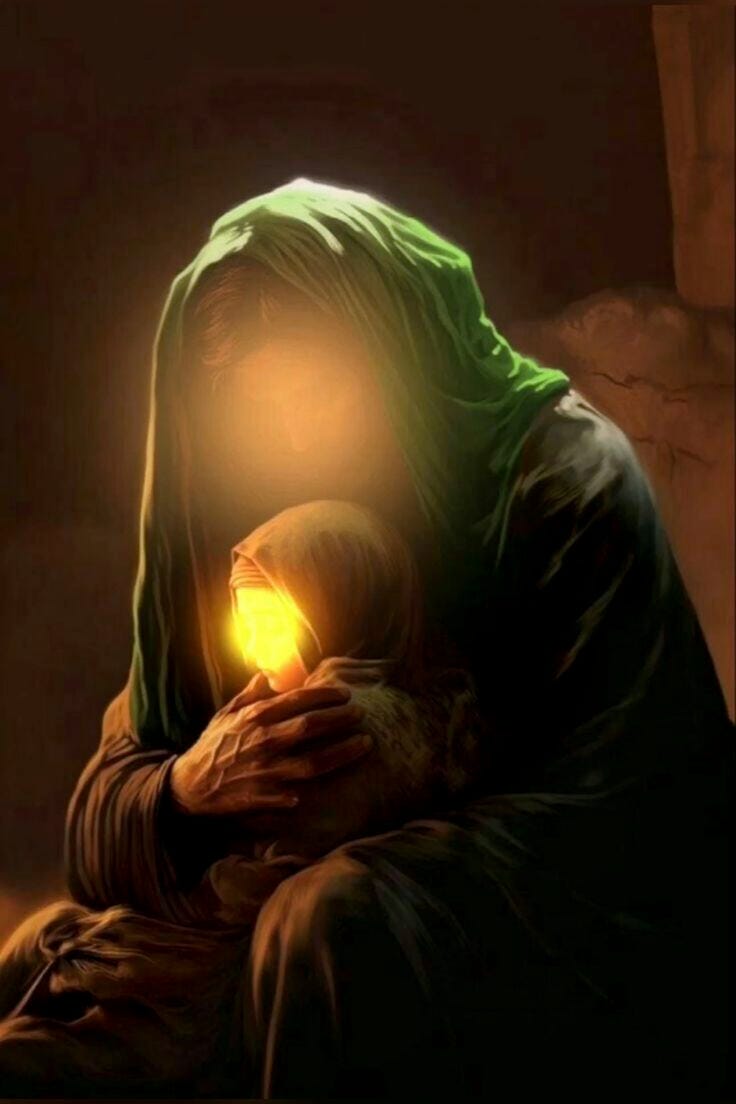The Martyrdom of Imam Ali
This is an account of the martyrdom of the Commander of the Faithful, Imam Ali, who was struck on Ramadhan 19, 40AH (661CE) and attained martyrdom on Ramadhan 21, 40AH (661CE)
In His Name, the Most High
بِسْمِ ٱللّٰهِ ٱلرَّحْمٰنِ ٱلرَّحِيمِ
ٱلْحَمْدُ لِلّٰهِ رَبِّ ٱلْعَالَمِينَ وَصَلَّى ٱللّٰهُ عَلَىٰ سَيِّدِنَا مُحَمَّدٍ وَعَلَىٰ أَهْلِ بَيْتِهِ ٱلطَّيِّبِينَ ٱلطَّاهِرِينَ ٱلْمَعْصُومِينَ، أَمَّا بَعْدُ
السَّلَامُ عَلَيْكُمْ وَرَحْمَةُ اللَّهِ وَبَرَكَاتُهُIn the name of God, the Most Gracious, the Most Merciful.
All praise is due to God, the Lord of all worlds, and may blessings be upon our Master Muhammad and upon his pure, purified, and infallible household. As for what follows:
Peace be upon you, and the mercy of God, and His blessings.
Video of the Eulogy / Lamentation
The Situation in Kufa and the Assassination of Imam Ali’s Commanders
The situation in Kufa was extremely tense and the Caliphate of Imam Ali was under attack from enemies both internal and external.
Plots by Muawiyyah and his chief advisor Amr ibn al-Aas, resulted in the martyrdom of two of Imam Ali’s most trusted commanders Malik Ashtar al-Nakhai and Mohammed bin Abu Bakr who had both been dispatched to Egypt.
The loss of Malik in particular was a major blow to Imam Ali and he wept profusely on hearing the news of his martyrdom.
Imam Ali exclaimed that Malik was to me as I was to the Prophet of God.
As result of these plots, Amr ibn al-Aas was able to take over the rulership of Egypt and bring it under the control of Muawiyyah. This emboldened Muawiyyah and his followers and they carried out attacks against various parts of the Islamic state, however, despite Imam Ali’s exhortations, he was unable to raise an army to confront Muawiyyah, due to the lethargy and apathy within his own ranks.
The Aftermath of Siffien and the Khawarej Revolt
A schism had formed within the ranks of the Kufan army during the Battle of Siffien, which forced Imam Ali into an arbitration, resulting in Amr ibn al-Aas removing Imam Ali from the caliphate and appointing Muawiyyah in his place. This was entirely due to the foolishness of Khawarej group who broke away from Imam Ali’s army and forced the appointment of Abu Musa al-Ashari as the arbitrator from the Kufan side.
Imam Ali did not accept the outcome of the arbitration as there was no basis for this in Quran and Sunnah (traditions and teachings of the Prophet Muhammad). The Khawarej then blamed Imam Ali for the outcome of the arbitration and declared him kafir (infidel, heretic).
The Khawarej’s Atrocities and Imam Ali’s Response
They went after Imam Ali’s followers and began killing them, wherever they found them. A particular incident occurred where the Khawarej attacked Abdullah bin Khabbab who was travelling with his pregnant wife.
Abdullah who had been a cook in the army of Imam Ali, was confronted by a group of the Khawarej, who demanded that he make takfir (renunciation, rejection of the faith of) of Imam Ali.
When he refused to do so, he was slaughtered and beheaded in front of his wife. His wife was also slaughtered and her stomach was ripped open and the foetus of the unborn child was removed and thrown into a nearby river.
This action forced Imam Ali into confronting this group and he gave them an ultimatum, where he demanded that they hand over the killers of Abdullah, or else he would raise an army against them.
When they refused to comply to this demand, Imam Ali went after them and a battle was fought at a place called Nahrawan, where all but ten of the Khawarej were killed, and where fewer than ten of Imam Ali’s own army were martyred.
The Plot to Assassinate Three Leaders
In the aftermath of Nahrawan, the survivors of the Khawarej became obsessed with revenge, and even more determined to finish Imam Ali once and for all.
A plot was hatched to assassinate three of the leaders, who the Khawarej claimed, were responsible for causing the fitneh (sedition) amongst the Muslims, namely Muawiyyah, Amr ibn al-Aas and Imam Ali.
Neither Muawiyyah nor Amr ibn al-Aas were killed, as it seems that they received prior notification of the plots against them, and took appropriate action to save themselves.
Some say that there was no plot against Muawiyyah or Amr ibn al-Aas and that this was only hearsay, and that Muawiyyah himself was behind the Khawarej movement, and he used the assassination plots against himself and Amr ibn al-Aas as a smokescreen, to mask his involvement in the plot, though this theory has never been proven for definite.
Ibn Muljim’s Role and the Influence of Qutamah
The person who was assigned to assassinate Imam Ali was from Kufa, and had fought alongside him at Jamal and was also in Siffien, until he split and joined with the Khawarej.
This person was Abd ar-Rahman ibn Muljim al-Muradi.
Ibn Muljim had also been in Nahrawan fighting against Imam Ali, but he was one of the few survivors. He came under the influence of Ashas ibn al-Qais al-Kindi, who was a paid spy of Muawiyyah, and the person responsible for creating the fitneh (sedition/strife) in Siffien, and through him became acquainted with a lady by the name of Qutamah, who he fell in love with and wished to marry.
Qutamah’s father and brother were part of the Khawarej movement, and had been killed by Imam Ali in Nahrawan, and she had a burning hatred for him and wished to take revenge. She told him that she was prepared to marry him, on condition, that he brought her the head of Imam Ali.
Ibn Muljim was initially reluctant, however with some persuasion from Ashas al-Kindi and due to his intense love for Qutamah and his desire for worldly gains, he eventually agreed to carry out the assassination.
Ibn Muljim knew, that to kill Imam Ali directly or in a confrontation was impossible, as he had never been defeated in any battle, and the only way to kill him was during his prayers, when he would be fully absorbed in the worship of God.
Everybody knew about the famous incident where Imam Ali became injured in one of the battles during the time of the Prophet, and an arrow needed to be removed from his foot.
The Prophet told the companions to remove the arrow while Imam Ali was in prayer, because at that time he is fully disconnected from this world, and would not feel any pain.
Ibn Muljim had been provided with a sword which was to be the murder weapon and he obtained some very strong poison, in which he dipped the sword for three days to ensure that the Imam would be killed by the poison, even if the strike did not kill him.
The Night of the Assassination
The night of the 19th of the Holy month of Ramadhan, the year 40 AH (After Hijrah, the dating system within Islam, which started following the migration of the Prophet Muhammad from Makkah to Madinah in 622CE). Imam Ali was spending the evening with his daughter Umm Kulthum, where he was sharing the iftar (meal had at the end of the daily fast in the month of Ramadhan) meal.
He was presented with three items salt, dried barley bread and milk. Addressing his daughter he told her.
“My daughter did you ever see your father breaking his fast with three items. Please remove one of the items.”
She went to take the salt, but he asked her instead to remove the milk. Imam Ali lived like the poorest in society, eating only dry bread. Many a time he would not have anything at all to eat and would tie a large stone to his stomach to help relieve the pangs of hunger.
Imam Ali spent the evening in worship. He would stop and look towards the heavens and exclaim.
“By God. Tonight is the night that I was promised.
Surely the messenger has spoken the truth!”
On seeing this Umm Kulthum became anxious and asked her father, what the matter was. Imam Ali replied to her that he had seen his brother, the Prophet, and her mother Lady Zahra, in a dream and they informed him that he would be reuniting with them.
It was close to the time of fajr (the morning prayer), and Imam Ali began getting ready to go to the mosque of Kufa for his final prayers. Umm Kulthum began to cry, and asked her father not to leave, and to ask somebody else to lead the prayers.
Imam Ali replied that this was a decree from God and he must go and meet his destiny.
On leaving the house the Imam was surrounded by the ducks who his daughter was taking care of. They began to quack loudly, flap their wings and grab hold of the cloak of the Imam with their bills, as if they were asking the Imam not to leave as they were aware of what was about to happen.
He turned to his daughter and advised her:
“Please take care of these creatures of God and ensure they are properly fed. And if you are unable to do so then please leave them free where God provide for them.”
The Attack in the Mosque of Kufa
Imam Ali entered the mosque of Kufa, where ibn Muljim and his accomplices lay in wait. He stood and recited the Adhan (the call to prayer) for the final time and his voice was heard throughout the whole of Kufa.
As the Imam stood in prayer, the attackers positioned themselves ready to attack at the opportune moment, as soon as he entered sujood (prostration), they came out from their hiding places, with Ibn Muljim, using his poisoned sword to strike with force, the back of the Imam’s skull, splitting it open, and allowing the poison to seep into his brain.
The Imam did not give out any cry of pain or agony, but only uttered the following words:
بِسْمِ اللَّهِ وَبِاللَّهِ وَفِي سَبِيلِ اللَّهِ، فُزْتُ بِرَبِّ الْكَعْبَةِ
“In the Name of God, and by God, and in the way of God.
By the Lord of the Kabah, I have been successful!”
Imam Ali’s Response to His Assassin
Ibn Muljim tries to run off, but is pursued and overcome by the crowd, who tie his hands and bring him back to the mosque and present him before Imam Ali.
His hands were bound tightly and he was clearly in discomfort.
When the Imam saw his condition, he ordered that his handcuffs be loosened. He then turned towards ibn Muljim and asked him:
“Have I not been a good Imam for you?”
Ibn Muljim replied:
“Yes, of course.”
Then the Imam asks him the question:
“So, why did you commit this action?”
Ibn Muljim felt embarrassed, and had no proper reply to give. He only uttered:
“The person who is destined to go to Hell. Who can save him and take him to Heaven?”
Imam Ali then gave the instruction to those gathered around him:
“If I am martyred as a result of this blow, then you may hit him once, as he only struck me one time, and if I survive then I will dispense justice myself.”
Imam Hassan took the blessed head of his father in his lap. The blood was pouring from his head and his beard had become completely reddened by the blood. As he looked upon the face of his father, his eyes filled with tears and he began to cry. A drop of the tears, fell on Imam Ali’s face and he opened his eyes.
Addressing his son, he said:
“Hassan, my dear, why do you cry? Please don’t cry. At this moment, I am in the presence of the people from Heaven who are sending greetings to me. The Prophet is here, Fatima Zahra is here. They have all come to meet me.”
The Mourning in Kufa
The prayer was completed and Imam Ali was helped from the mosque, although he was hardly able to walk and had become unstable. Eventually they were able to reach him back to his house.
On the way from the mosque a loud cry was heard throughout Kufa:
تَهَدَّمَتْ وَاللَّهِ أَرْكَانُ الْهُدَى، قُتِلَ عَلِيٌّ الْمُرْتَضَى
“By God, the pillars of guidance have collapsed! Ali, the Chosen One, has been killed!”
This cry caused a great commotion and agitation amongst the people of Kufa, and the atmosphere felt like the day when the Prophet had left this world.
The people of Kufa rushed towards the mosque to find out what had happened.
Cries of desperation and grief were heard throughout the city.
When Amir al-Mumineen (the Commander of the Faithful - Imam Ali) arrived back to his house, he was met by his younger son, Imam Hussain.
The narrator mentions that Imam Hussain had wept so intensely, that his eyelids had become injured.
Imam Ali walked towards Imam Hussain, and tried to comfort him:
“Hussain, my dear. Please don’t cry. Have patience, this incident is finished and is of no great importance. Everything is fine.”
They brought Amir al-Mumineen inside the house, and took him towards his musalla (place of prayer) which was the place where he used to perform his private prayers. He requested to be kept there, and a bed was prepared for his rest and recovery.
At this point, the daughters of Imam Ali, entered the room.
Zainab and Umm Kulthum both came and sat next to Amir al-Mumineen. Both the daughters began to weep intensely on seeing the condition of their father.
When Imam Ali saw his sons Imam Hassan and Imam Hussain, he had urged both of them to show patience and not to cry. But when it came to his daughters, Amir al-Mumineen was unable to control himself, and he too began to weep and cry.
O Amir al-Mumineen, you could not bear to see Sayeda Zainab crying and grief stricken, then what about on the day of Ashura?
How would you have been to able to cope with seeing the condition of Zainab who had just witnessed her brothers, children and close family being slaughtered on the plains of Karbala?
The physicians who visited Amir al-Mumineen, pronounced that the injuries would be terminal and that the Imam would not survive for much longer. Indeed, Imam Ali would only remain in this temporal realm, for another 48 hours, before his returning to God, and the beginning of a long and dark chapter in the history of Islam.
Imam Ali’s Final Will and Testimony
Imam’s family, close companions and the people began to gather at his house, wishing to make a final ziyarat (visitation), and to gain some words of advice which would be a benefit for them in this world and the hereafter.
In his final will and testament, which was written in a form of a letter addressed to his eldest son Imam Hassan, he provides a comprehensive list of advices for his family members, followers and those who would come later and wish to follow in his way. A few of the selected advises are listed below:
I advise you towards the fear of God.
Do not run after the pleasures of this world, even though they may run after you.
Do not grieve, or become sorrowful for anything of this world which you have been deprived of.
Always speak the truth.
God, Oh God. The orphans.
God, Oh God. The neighbours.
God, Oh God. The Quran.
God, Oh God. The daily prayers.
God, Oh God. The house of God, the holy Kabah.
God, Oh God. Jihad (struggle), in the way of God and on the path of God, with your wealth and your belongings.
Be an enemy of the oppressor and a helper of the oppressed.
The Farewell of His Companions and Family
As Amir al-Mumineen’s condition worsened, the effects of the poison were becoming manifest on his face. He told Imam Hassan to ask the people to leave, and only for his close family members to remain behind.
All the companions left as instructed, however, from behind the door the sound of weeping was audible to those inside the house. Imam Hassan, went outside to investigate, and he found one of Imam Ali’s close companions, Asbagh bin an-Nabatah leant against the wall, weeping profusely.
Imam Hassan turned to Asbagh, and asked him.
“Did my father not ask everyone to leave?”
Answering the Imam with heavy weeping, Asbagh said:
“O son of the messenger of God. My feet cannot carry me from here, until I meet my Mawla (master) one last time.”
Imam Hassan then goes and seek permission for Asbagh to enter. Asbagh looks at the condition of Amir al-Mumineen, whose turban and face were now pale yellow in colour due to the effects of the poison, and throws himself on the body of the Imam begins weeping even more intensely than before.
Imam Ali tries to calm him, asking him:
“Why do weep so much. By God it is paradise.”
Asbagh replies:
“I know you will be in paradise, but I cannot bear this separation from you.”
Close to death, Imam Ali gathers all of the close family around him, and announces that after he departs Imam Hassan is the Imam, and they must all remain loyal and faithful to him.
All of the children are called in turn to take the oath of allegiance to Imam Hassan, however there is a mother, and her son, who were standing in the corner who were not called forward.
Finally, Lady Umm al-Baneen, approaches her husband Imam Ali, and asks him very respectfully:
“Why did you not call Abbas to come and pay allegiance. Has he done something wrong?”
Imam Ali, then turns to Umm al-Baneen, and asks her:
“Where is Abbas. Please send him to me.”
Abbas steps forward, and Imam Ali embraces, and kisses his arms. He then asks Imam Hussain to come forward, and he places the hands of Abbas into the hands of Imam Hussain.
Addressing Abbas, he tells him:
“O Abbas, I am giving you over to Imam Hussain. You be with, and protect, him at all times, even if you need to sacrifice your life for him.”
Imam Ali’s Martyrdom and Secret Burial
Imam Ali returns to his lord on the night of the 21st of Ramadhan 40 AH, nearly two days after being struck, by the poisoned sword of the accursed ibn Muljim.
Imam Hassan and Imam Hussain take responsibility for washing and shrouding the body.
The burial ceremony is held in secret with only the sons and a few close companions of Imam Ali in attendance. The body is taken to a secret location, some distance away from the city of Kufa.
It is reported that a grave had already been made ready, and Imam Ali was buried beside his forefathers Prophet Adam, and Prophet Nuh (Noah), peace be upon them both.
The Blind Beggar’s Story
On returning back to Kufa from the burial, Imam Hassan and Imam Hussain heard the sound of a beggar sitting in the street crying and wailing. They went to enquire after the man, he told them that he had been hungry for nearly two days. He was blind and unable to take care of himself, but a man would come every night to feed, and wash him.
The brothers asked him to describe this man or give his name. The man replied:
“I never knew his name, but whenever I asked who he was, he would reply:
‘I am a beggar amongst the beggars. I am a poor one amongst the poor ones.’
But I noticed that he had a special fragrance,
and I can smell the same fragrance coming from you.”
The brothers looked at each other and began to weep. Then, turning to address the beggar, Imam Hassan said:
“O man, do not wait for that person to come. He is no longer in this world. He was none other than my father, Amir al-Mumineen, Imam Ali, the caliph of the Muslims.
We have just returned from burying him.”
On hearing this the beggar broke down, and began weeping profusely. He then uttered the following:
“O God, I do not wish to live in a world without Imam Ali.”
Shortly afterwards, he too passed away.
Quranic Reflections and Conclusion
وَسَيَعْلَمُ ٱلَّذِينَ ظَلَمُوا۟ أَىَّ مُنقَلَبٍۢ يَنقَلِبُونَ
And those who have wronged, will come to know to what [evil] return, they will be returning.
- Quran, Surah ash-Shu’ara (the Chapter of the Poets) #26, Verse 227
إِنَّا لِلَّهِ وَإِنَّا إِلَيْهِ رَاجِعُونَ
Indeed, we belong to God, and indeed to Him we shall return.
- Quran, Surah al-Baqarah (the Chapter of the Cow) #2, Verse 156


















